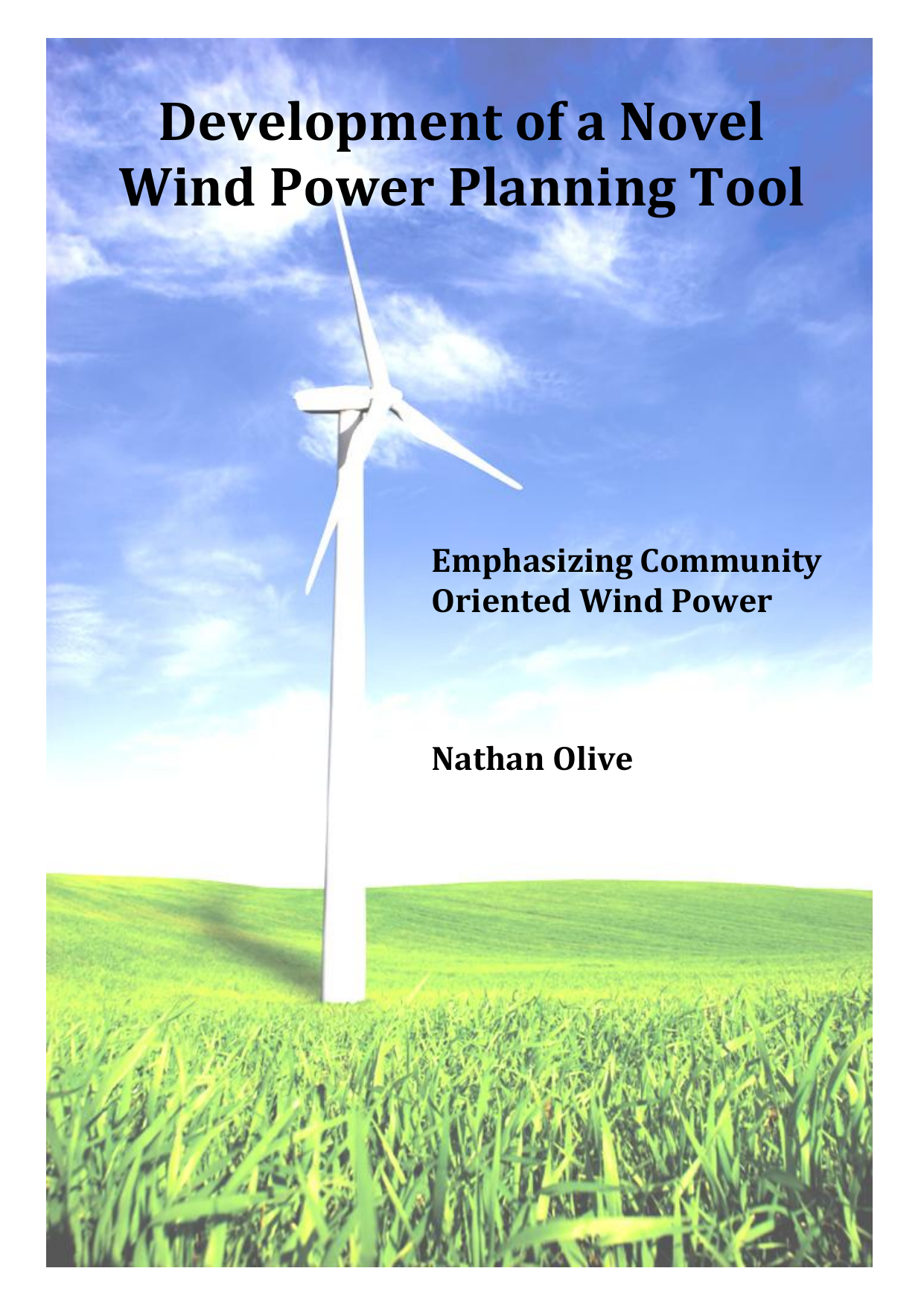
Development of a Novel Wind Power Planning Tool: Emphasizing Community Oriented Wind Power
Translated title
Development of a Novel Wind Power Plan Tool
Author
Term
10. term
Education
Publication year
2010
Submitted on
2010-06-09
Pages
94
Abstract
The United States has experienced rapid growth in wind power implementation in recent years. However, only a very small percentage of this growth can be attributed to community owned projects, while the vast majority has been large scale and corporate owned. This style of development has negative connotations due to the exclusion of local stakeholders from project design and ownership. Two major sets of issues, institutional conditions and local stakeholder dynamics, have been identified as causative factors contributing to this situation. Thus, this thesis has been conducted in an effort to better understand and address these problem sets. Two primary analytical approaches are followed, one for each of the major problem areas. The first uses established analytical techniques to describe the current institutional context in order to gauge its affect on community wind power. The second employs a derived theoretical approach to investigate local stakeholder dynamics involved in specific project settings. This second approach has led to the creation of a novel planning tool called the Development Strategy Matrix (DSM). This tool is intended to enhance the ability of project managers (PM) to identify context specific conflict issues in unique project settings. A built in “Matching System” then allows the PM to select development strategies designed specifically for the identified conflict issues. To do this, the DSM utilizes two knowledge “libraries” that were constructed for this purpose. These libraries include a wide range of “conflict issues” and associated “solution strategies” drawn from a host of historical case studies and actor interviews. A derived methodology has also been presented in order to facilitate use of the DSM in an actual project planning process. Results of the first analytical tract revealed specific characteristics of the current institutional system that hinder community wind development. These have been integrated into the DSM in order to reflect their broad project applicability. The second analytical tract has resulted in the compilation of the two knowledge “libraries” and a functional “Matching System”, which together form the DSM planning tool. An accompanying Flexible Development Approach (FDA) has been designed in order to integrate the use of the DSM into an established wind project planning process. Hypothetical testing of the completed FDA indicates that it has the potential to significantly improve a wind developer’s ability to identify conflict issues and associated solution strategies in unique local project settings.
Keywords
